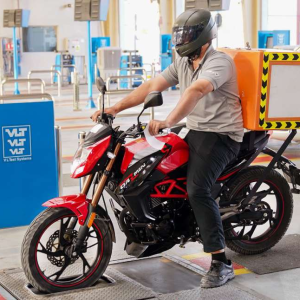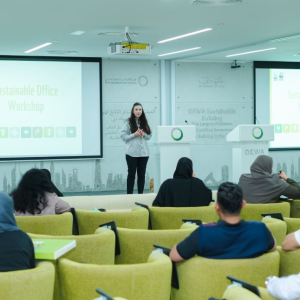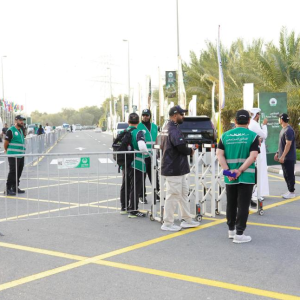Dubai has long been a global magnet for dreamers, doers, and entrepreneurs. With its tax advantages, world-class infrastructure, and multicultural market, it’s one of the most successful and business-friendly cities in the world. But if you’re a foreigner wondering how to start a venture here, the process can seem overwhelming — filled with paperwork, licenses, and a maze of legal terms.
Good news: It’s not as hard as it seems — if you know the right steps.
Whether you’re planning to launch a café, a digital agency, a boutique, or an e-commerce store, this guide will walk you through how to start a business in Dubai as a foreigner — from idea to license to launch — with real, actionable insights.

Why Dubai Attracts Global Entrepreneurs
Dubai isn’t just glamorous — it’s practical. With zero personal income tax, strategic global location, and a booming expat population, it has become a global hub for startups and SMEs.
The UAE government has made major changes in recent years to attract foreign investment. From long-term residency options to full business ownership, Dubai is opening doors like never before.

You no longer need a local Emirati partner to own a mainland company — a massive shift that has made entrepreneurship more accessible to foreigners than ever.
Choose the Right Business Activity
Before anything else, you need to decide what kind of business you want to start. The Department of Economic Development (DED) has a list of over 2,000 business activities — from restaurants and salons to software consultancies and fashion trading.
Your chosen activity will determine what license you need, where you can operate (mainland or free zone), and whether you need additional approvals.
If you’re unsure, business setup consultants in Dubai can help you identify the best category based on your vision.

Mainland vs Free Zone: Know the Difference
One of the first choices you’ll make is whether to set up your business in the mainland or a free zone. Each comes with its own rules, benefits, and costs.
Mainland Business
- Can operate anywhere in the UAE and internationally
- Now allows 100% foreign ownership in most sectors
- Requires more regulation, including a physical office space
- Suitable for businesses wanting to trade directly within the UAE
Free Zone Business
- Operates within a specific jurisdiction (like DMCC, Dubai South, DIFC)
- 100% foreign ownership guaranteed
- Fast-track setup and fewer restrictions
- Limited to doing business within the free zone or abroad (unless using a distributor)
If your business is online, consulting-based, or service-focused, a free zone might be ideal. But if you plan to have retail outlets or local clients, mainland is usually better.
Choose a Legal Structure That Fits
There are several legal forms your business can take, depending on your activity and size. The most common ones include:
- Sole Proprietorship (for individuals)
- Limited Liability Company (LLC)
- Civil Company (for professionals like doctors, engineers)
- Branch Office (if you’re expanding an existing foreign business)
An LLC is the most flexible and widely used structure for foreigners looking to set up a commercial business in the mainland.
Register Your Trade Name
Once your business activity is finalized, you’ll need to pick a trade name. It should reflect your business nature and follow certain naming rules — avoid religious references, offensive words, and abbreviations.
You can apply for name approval through the DED website or through your business consultant.
Apply for Initial Approval
Initial approval is like a green signal from the government that they have no objection to you starting your business in Dubai. It’s valid for 6 months and gives you time to complete other steps like leasing office space or getting external approvals.
For some industries (like education, healthcare, legal), you may need to get additional permits from relevant ministries or authorities.
Find a Business Location
Location can make or break your business — especially in Dubai where visibility, footfall, and neighborhood reputation matter.
If you’re going for a mainland business, you’ll need a physical office space. Co-working spaces are also accepted, and they’re a popular option for startups to reduce cost.
Free zones usually offer flexible workspace packages — from hot desks to flexi offices to private suites.
Once you finalize the location, you’ll sign a tenancy contract and get an Ejari certificate, which is a requirement for your license.
Submit All Documents and Get Your License
Once you’ve completed the above steps, you’re ready to submit your documents and apply for your business license. Here’s what you typically need:
- Trade name approval
- Initial approval certificate
- Tenancy contract (Ejari)
- Passport copies of shareholders
- Memorandum of Association (MoA)
- Shareholder resolution (if applicable)
- External approvals (if your business type needs it)
Once approved, you’ll receive your business license — your official permission to operate in Dubai.

Open a Business Bank Account
A business bank account is essential for running your operations. Dubai has many local and international banks that cater to foreign-owned businesses.
Banks will usually ask for:
- Business license
- Shareholder passports and visas
- Business plan
- Office address
- Source of funds declaration
Choose a bank that fits your transaction volume, international needs, and service expectations. Some popular choices include Emirates NBD, Mashreq, ADCB, and international banks like HSBC or Standard Chartered.
Apply for Visas (Including Yours)
Once your license is issued, you can apply for residence visas — including for yourself, your partners, employees, or dependents.
The number of visas you’re allowed depends on your office size and license type. Free zones usually have their own visa quotas and processes, while mainland companies go through the Ministry of Human Resources and Emiratisation.
The UAE also offers Golden Visas and Green Visas for investors and entrepreneurs who meet specific criteria — offering long-term residency options without a local sponsor.
Understand the Costs Involved
Starting a business in Dubai isn’t free, but it’s more affordable than many think — especially when you compare it to cities like London, New York, or Singapore.
Typical costs include:
- Trade license fees (AED 10,000–20,000)
- Name reservation and initial approval (AED 1,000–2,000)
- Office rent (varies by location and size)
- Immigration card and visa fees
- Local service agent fees (if needed)
- Free zone packages (starting as low as AED 5,750 in some cases)
Many free zones offer “zero visa” or “shared desk” startup packages for solo founders or digital entrepreneurs.
Common Mistakes to Avoid
While setting up is easier than ever, many new entrepreneurs make avoidable mistakes. Watch out for:
- Not researching the right free zone for your business type
- Picking the wrong business activity (which later restricts operations)
- Ignoring visa limits or bank compliance issues
- Skipping professional help, which can save time and legal trouble
- Underestimating ongoing costs like renewals, office, or accounting
Always read the fine print, ask questions, and never rush the paperwork.
Do You Need a Local Sponsor?
As of recent reforms, you no longer need a local sponsor or partner for most business activities on the mainland. Foreigners can now own 100% of their business.
However, for some specific sectors like defense, oil & gas, or legal services, a UAE national may still be required as a local partner or service agent.
This reform is a game-changer — making it easier for international entrepreneurs to build and grow in Dubai without giving up ownership.
Get Expert Help (It’s Worth It)
While it’s possible to do it all yourself, many foreigners prefer working with a business setup consultant. These experts handle your paperwork, approvals, translations, and legal documents — helping you avoid mistakes and delays.
There are dozens of reputable agencies in Dubai, including Virtuzone, Creative Zone, and Commitbiz, that specialize in supporting foreign entrepreneurs.
Their fees vary, but the time and stress saved often make it worthwhile.
Final Thoughts: From Dream to Reality
Dubai is not just a city — it’s a launchpad. Whether you’re a freelancer, startup founder, or an experienced entrepreneur, this city offers the tools, incentives, and environment to build something great.
Yes, the process may feel intimidating at first. But with the right guidance and a step-by-step plan, your dream business in Dubai is absolutely achievable.
Thousands of foreigners have done it — and many are thriving. The city is big enough for your ideas, your ambition, and your story.
Start slow, stay smart, and remember: every big business in Dubai once started with one bold step.
Follow us on instagram: UAE STORIES
Read More: Tickmill Brand Uplift: A Confident Step Into the Future













